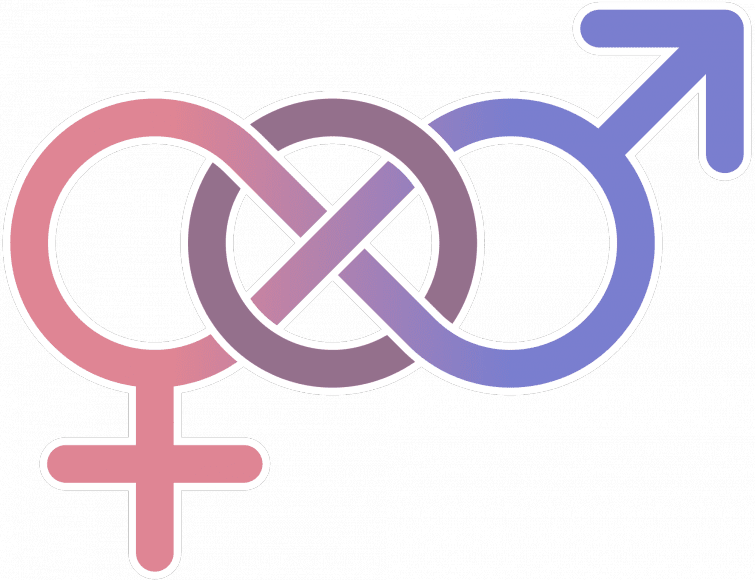Reading Time: 5 minutes
‘Sex’ is a biological construct whereas ‘Gender’ is a social one, explains Pratima. She explains the difference. An exclusive for Different Truths.
 “There is no ‘female mind’. The brain is not an organ of sex. Might as well speak of a female liver.” ~ Charlotte Perkins Gilman, Women and Economics
“There is no ‘female mind’. The brain is not an organ of sex. Might as well speak of a female liver.” ~ Charlotte Perkins Gilman, Women and Economics
More often than not, the terms sex and gender have been used interchangeably to imply the different physiology of male and female. As a student filling up forms for admission to higher studies, one often comes across the word ‘Sex’ in one form and ‘Gender’ in some other and the desired answer to both these is whether the candidate is a male or a female. In our day to day conversations, these two words are time and again used as synonyms.
‘Sex’ is given, defined, rigid, while ‘Gender’ is fluid and flexible. The patriarchal roles of the gender types defined in most world civilisations are based on similar ideas — the strong, sturdy, logical, energetic, brave, superior male and the delicate, illogical, cowardly, domesticated, inferior female.
But there is a marked difference between the two words. ‘Sex’ is a biological construct whereas ‘Gender’ is a social one. By ‘Sex’ is meant the determination of one’s physiology — the differential anatomy, which includes the genital divide between the male and the female, while ‘Gender’ is a social construct. The latter is an idea of how men and women should project themselves to the world — the norms, the rules, the regulations according to which they should act and behave in the society. Thus ‘Sex’ is given, defined, rigid, while ‘Gender’ is fluid and flexible. The patriarchal roles of the gender types defined in most world civilisations are based on similar ideas — the strong, sturdy, logical, energetic, brave, superior male and the delicate, illogical, cowardly, domesticated, inferior female.
Simone de Beauvoir’s The Second Sex, a seminal book on feminism published in 1949, intriguingly delves into the difference between sex and gender. In the book, the authoress famously states,
One is not born, but rather becomes, a woman. No biological, psychological, or economic destiny defines the figure that the human female acquires in society; it is civilization as a whole that develops this product, intermediate between female and eunuch, which one calls feminine.
While the boys are given more importance and taught to be bold, the girls are taught to be subservient and docile; while the male children are exempted from domestic work and kitchen duties, the female child is rebuked and coerced to learn all household skills right from childhood. In the aforementioned lines, Beauvoir hints at the ways and means in which the society moulds and shapes an infant girl child to function according to the qualities attributed to a woman.
This statement famously and sharply spells out the divide between the man and the woman — while both are born as innocent infants with different physiology, they are framed into certain stereotypic moulds created by society. While the boys are given more importance and taught to be bold, the girls are taught to be subservient and docile; while the male children are exempted from domestic work and kitchen duties, the female child is rebuked and coerced to learn all household skills right from childhood. In the aforementioned lines, Beauvoir hints at the ways  and means in which the society moulds and shapes an infant girl child to function according to the qualities attributed to a woman. How often in our Indian society we hear such cliché tic statements as ‘You are a boy, don’t cry like a girl’ and ‘Daughter you are paraya dhan’. A man who exhibits his emotions is taken to be weak, unmanly and becomes a laughing stock while the girl is viewed as somebody else’s property to be married off to her owner at a later date.
and means in which the society moulds and shapes an infant girl child to function according to the qualities attributed to a woman. How often in our Indian society we hear such cliché tic statements as ‘You are a boy, don’t cry like a girl’ and ‘Daughter you are paraya dhan’. A man who exhibits his emotions is taken to be weak, unmanly and becomes a laughing stock while the girl is viewed as somebody else’s property to be married off to her owner at a later date.
Virginia Woolf’s captivating essay A Room of One’s Own (1929) presents a perfect example of gender conditioning and foregrounds the gender divide. In the essay, Woolf conjures up a fictitious character of Judith Shakespeare who supposedly is the sister of William Shakespeare. Judith Shakespeare is presented by the author as being more talented than Shakespeare. But despite her love of poetry and books, she is not allowed to study by her traditional, patriarchal parents who want her to learn household skills and get married. When she leaves her home and makes her way to the city theatre, as Shakespeare too did, she is molested by the Theatre Director. Finally, after months of molestation and sexual abuse, she becomes pregnant and commits suicide. Judith is looked down upon by society as a degraded and fallen woman. What Woolf wants to bring out here is that despite all talent and abilities how difficult it was for women to create their own niche. Though Shakespeare achieved grand success, if ever he had a gifted sister, she would have perished in the filth of some city. As Woolf puts it,
That woman, then, who was born with a gift of poetry in the sixteenth century, was an unhappy woman, a woman at strife against herself. All the conditions of her life, all her own instincts, were hostile to the state of mind which is needed to set free whatever is in the brain.
So how men and women are seen in society creates all the difference. Judith’s catastrophe took place not because she lacked brilliance and talent but because of her being a woman.
The nineteenth-century famous novelist, George Eliot was, in reality, a woman called Mary Anne Evans, who took up the male pseudonym in order that people consider her work seriously and do not think about her as a frivolous woman writing playfully. Marie Curie who was the first woman to win the Nobel Prize and the only one to win it twice in two different fields, Physics and Chemistry, was originally ignored by the Nobel nominating committees who accorded the success for Physics Nobel Prize to her husband Pierre Curie alone.
It is for the same reason why most women were not a part of literary canon till the early twentieth century. The nineteenth-century famous novelist, George Eliot was, in reality, a woman called Mary Anne Evans, who took up the male pseudonym in order that people consider her work seriously and do not think about her as a frivolous woman writing playfully. Marie Curie who was the first woman to win the Nobel Prize and the only one to win it twice in two different fields, Physics and Chemistry, was originally ignored by the Nobel nominating committees who accorded the success for Physics Nobel Prize to her husband Pierre Curie alone. It was later at the insistence of Pierre Curie that her name was also jointly added with him.
Such gross injustices against women prevailed in almost all societies and because of their gender; they were belittled by society time and again. Though with the upsurge of the feminist movement in late 19th and early 20th centuries, the scenario slightly changed with an increasing representation of women in society, in political and other spheres of life, yet a lot needs to be done even today to break the stereotypical shackles of society, the gender bias and gender conditioning.
The time has come for ‘unlearning’ of all the gender-related notions instilled in our heads. This freedom from stereotype is not only beneficial for women but also for men who sometimes find themselves a misfit in a world which pigeonholes them to be brave, to be ambitious and to always be the sole/major breadwinner for the family. Only the quashing of stereotypes can establish equality. The entire idea of feminism revolves around equality, about freedom from gender typecasts, from the bondage of patriarchy for the formation of a better, egalitarian world. To conclude in the words of Bell Hooks, “Simply put, feminism is a movement to end sexism, sexist exploitation, and oppression.” (from Feminism is for Everybody: Passionate Politics)
Photo from the Internet















Excellent write up!
A very well written article. Congratulations Pratima